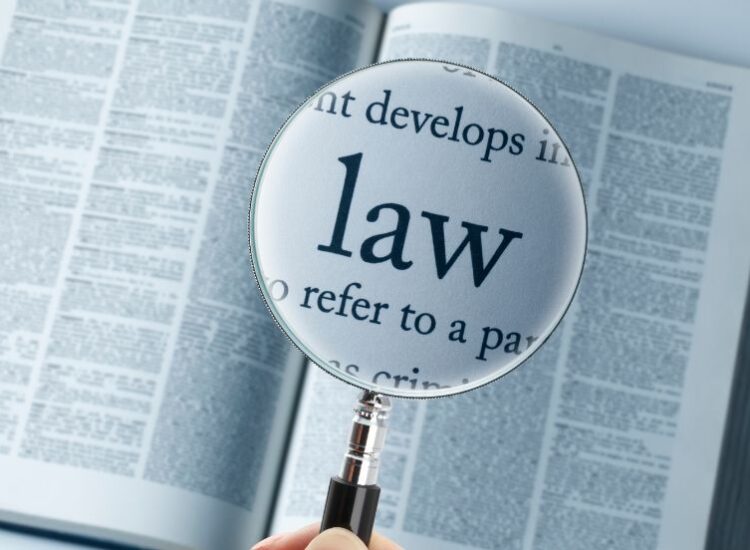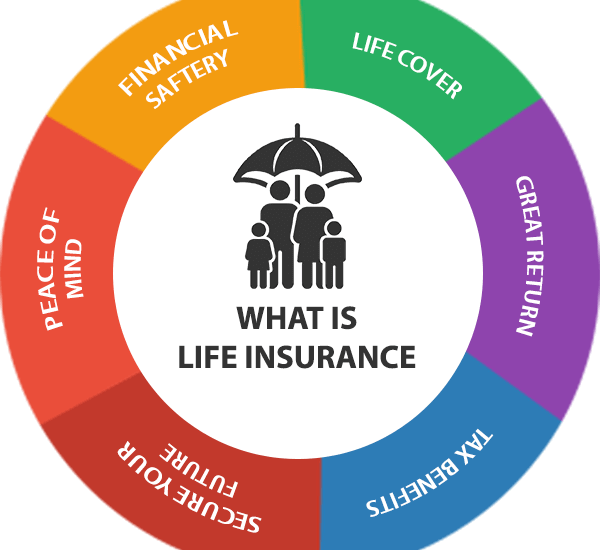Understanding Business Insurance Liability
When running a business, understanding the essentials of business insurance liability is vital for long-term stability and peace of mind. This type of insurance serves as a critical safeguard, protecting your enterprise from unexpected financial risks such as lawsuits, property damage, or third-party claims. Without adequate coverage, a single incident could significantly impact your bottom line or even jeopardize the future of your business. Business insurance liability ensures you can focus on growth and success without the constant worry of unforeseen events derailing your progress. Below, we’ll explore what business insurance liability entails, why it’s important for businesses of all sizes, and how to determine the best coverage tailored to your unique needs and industry demands.
Toc

What is Business Insurance Liability?
Business insurance liability is a crucial type of coverage designed to protect a company from claims of injury, property damage, or negligence arising during its operations. These claims can stem from incidents involving customers, employees, or third parties and can result in significant financial and reputational damages if not properly managed. Having the right liability insurance in place ensures that your business is safeguarded against these risks, allowing you to focus on growth and success without unnecessary distractions.
Types of Liability Insurance
Business liability insurance comes in several forms, each tailored to address specific scenarios and risks. Understanding the types of coverage available can help you make informed decisions to protect your company effectively.
- General Liability Insurance
General liability insurance is the most common and foundational type of coverage for businesses. It protects against claims related to bodily injury, property damage, and personal injury. For example, if a customer slips and falls at your business location, this policy can cover associated medical expenses, legal fees, and potential settlement costs. It also extends to instances like accidental damage to a client’s property during a service call. Without this coverage, such incidents could lead to devastating financial losses.
- Professional Liability Insurance
Often referred to as errors and omissions (E&O) insurance, professional liability insurance is essential for businesses that provide specialized services or advice. This coverage protects against claims of negligence, errors, or omissions that may cause financial loss to a client. For instance, if a consultant provides advice that leads to a costly mistake for their client, professional liability insurance can help cover legal fees, settlements, or judgments. This type of insurance is especially critical for industries like consulting, law, accounting, and healthcare, where mistakes can have significant consequences.
- Product Liability Insurance
For businesses that manufacture, distribute, or sell products, product liability insurance is essential. This type of coverage protects against claims of injury, illness, or property damage caused by defective or malfunctioning products. For example, if a customer suffers an injury due to a faulty product your company sold, product liability insurance can cover the associated costs, including medical expenses and legal representation. In today’s litigious society, this coverage is especially important for businesses operating in sectors like consumer goods, electronics, or food production.
Why Every Business Needs It
No matter the size or industry, every business faces a variety of risks that could result in significant financial strain if not properly managed. Business insurance liability offers essential protection and peace of mind, ensuring that unexpected events don’t derail your operations or threaten your company’s future.
- Legal Protection
Lawsuits can happen to any business, even those that take every precaution to avoid them. Whether it’s a customer injury, an employee dispute, or a claim of negligence, legal battles can be expensive and time-consuming. Liability insurance helps cover legal fees, court costs, and potential settlements, ensuring your business can withstand the financial burden of such disputes. Without coverage, even a single lawsuit could put a small business at risk of closing its doors.
- Client Trust
Holding liability insurance demonstrates professionalism, reliability, and responsibility. Clients and business partners are more likely to trust and work with a company that has the appropriate coverage in place. For example, many clients may require proof of insurance before signing contracts, especially in industries like construction or consulting. Liability insurance not only protects your business but also strengthens relationships with clients by showing that you take risk management seriously.
1. https://dalatfarmer.vn/mmoga-the-ultimate-toolkit-for-scaling-operations-in-growing-companies/
2. https://dalatfarmer.vn/mmoga-a-comprehensive-guide-to-small-business-insurance/
3. https://dalatfarmer.vn/mmoga-the-ultimate-handbook-on-financial-planning-for-entrepreneurs/
4. https://dalatfarmer.vn/mmoga-comprehensive-guide-to-finding-the-best-business-insurance-near-me/
5. https://dalatfarmer.vn/mmoga-the-role-of-liability-coverage-in-protecting-your-enterprise/
- Regulatory Compliance
Depending on your location and industry, liability insurance may be a legal requirement to operate. For instance, certain states mandate liability coverage for businesses in construction, healthcare, and other high-risk sectors. Meeting these regulatory requirements ensures your business avoids fines, penalties, or potential shutdowns. Additionally, having the right insurance can make it easier to secure permits, licenses, or contracts that require proof of coverage.
- Business Continuity
Beyond legal and financial protection, liability insurance plays a vital role in ensuring the long-term survival of your business. Unforeseen incidents can disrupt daily operations and divert resources away from growth and development. With the right insurance, you can address these challenges quickly and effectively, minimizing their impact on your company’s bottom line. Whether it’s a lawsuit, a product recall, or an accidental injury, liability coverage provides the resources you need to keep moving forward.
Conclusion
In the ever-evolving business landscape, risks are an inevitable part of growth. Business insurance liability is not just an added expense—it’s an essential investment in protecting your company’s future. By understanding the different types of liability insurance and their benefits, you can make informed decisions that safeguard your business, build client trust, and ensure compliance with regulations. Whether you’re a small startup or an established enterprise, having the right coverage in place allows you to focus on what truly matters: growing your business with confidence.
How to Choose the Right Business Insurance Liability
Choosing the right business liability insurance requires a clear understanding of your specific risks, industry standards, and the unique needs of your business. With the right coverage in place, you can protect your company from financial setbacks caused by unexpected events such as lawsuits, property damage, or employee injuries. Liability insurance not only safeguards your business but also provides peace of mind, allowing you to focus on growth and operations without constantly worrying about potential liabilities. Here’s what to consider:

Assessing Business Risks
Start by conducting a thorough evaluation of your business activities to identify potential hazards and liabilities. Consider both internal and external risks that may impact your operations. For example, a construction company may face greater risks of physical injury, equipment damage, or property liability due to the nature of their work, while an online consultation firm might need to focus more on risks like data breaches, intellectual property disputes, or professional liability in the digital space. Think about worst-case scenarios and how they could financially and legally affect your business. Take into account the frequency and severity of these risks to better prioritize what coverage you need. It may also be helpful to review historical claims data, industry trends, or even consult with peers in your field to ensure you don’t overlook any critical risks.
Consulting with Insurance Professionals
Navigating the world of insurance policies can be overwhelming, especially with the wide array of coverages available. Working with experienced insurance agents or brokers can simplify the process and ensure you’re making informed decisions. These professionals can assess your business model, industry, and growth trajectory to recommend tailored policies that meet your needs. They can break down complex policy language, help you understand key terms, and point out any gaps in coverage that could leave your business vulnerable. Additionally, an insurance professional can help you balance cost with coverage, ensuring you’re getting the best value for your investment. Building a relationship with a trusted insurance expert not only makes the initial purchase easier but also simplifies renewals, adjustments, or claims as your business evolves over time. Remember, your insurance needs may change as your company grows or explores new markets, so having a knowledgeable partner to guide you can save time and reduce stress.
Understanding Coverage Limits
Every insurance policy has its limitations, so it’s critical to read the fine print and fully understand what is—and isn’t—covered. For instance, while a general liability policy might cover third-party injuries and property damage, it may not include coverage for cyberattacks or certain natural disasters unless purchased as additional policies or endorsements. Similarly, professional liability insurance may exclude coverage for intentional errors or breaches of contract. Underinsurance is a common but costly mistake, leaving businesses vulnerable to significant out-of-pocket expenses during claims. Overestimating your risk level might lead to paying for unnecessary coverage, while underestimating it could result in financial instability when a crisis occurs. Always ensure your coverage aligns with your specific risk profile, industry standards, and long-term business goals. Reassess your policies regularly as your company grows, introduces new products or services, or enters new markets, as these changes may alter your risk landscape.
The Importance of Being Proactive
It’s important to remember that insurance isn’t a one-size-fits-all solution. Proactively taking steps to understand and manage your risks, rather than waiting for an incident to occur, can save your business from significant losses. In addition to purchasing liability insurance, consider implementing risk management practices such as employee training programs, regular safety inspections, or investing in cybersecurity measures. These steps not only reduce potential risks but may also qualify your business for lower insurance premiums.
By carefully evaluating your risks, seeking expert advice, and understanding the details of your policy, you can secure liability insurance that best protects your business. This thoughtful approach will help your company remain resilient, even in the face of unexpected challenges, and position your business for long-term success.
Benefits of Effective Business Insurance Liability
Investing in comprehensive coverage doesn’t just mitigate financial risks—it also fosters long-term business stability, protects your hard-earned reputation, and opens doors to new growth opportunities. In today’s unpredictable world, liability insurance is not just an option; it’s a vital safety net for businesses of all sizes and industries. It ensures that your business is prepared to weather the unexpected, providing both financial security and peace of mind.

1. https://dalatfarmer.vn/mmoga-a-comprehensive-guide-to-small-business-insurance/
2. https://dalatfarmer.vn/mmoga-the-ultimate-toolkit-for-scaling-operations-in-growing-companies/
3. https://dalatfarmer.vn/mmoga-the-role-of-liability-coverage-in-protecting-your-enterprise/
4. https://dalatfarmer.vn/mmoga-comprehensive-guide-to-finding-the-best-business-insurance-near-me/
5. https://dalatfarmer.vn/mmoga-the-ultimate-handbook-on-financial-planning-for-entrepreneurs/
Financial Security
Every business faces the possibility of unexpected incidents—whether it’s a slip-and-fall accident on your premises, a product defect, or a breach of contract. Liability insurance ensures you won’t have to drain your operational funds to cover costs like legal fees, settlements, or damages. These expenses can quickly spiral out of control, putting even the most successful businesses at risk. With the right insurance coverage, you can protect your cash flow and financial health, allowing your business to stay on track even during challenging times.
Consider this: without insurance, a single costly claim could potentially destroy your entire operation, forcing you to close your doors permanently. Liability insurance acts as a financial buffer, giving you the confidence to focus on running your business without constantly worrying about “what if” scenarios. Whether you’re a small business owner or leading a larger enterprise, this layer of protection is essential for safeguarding your future.
Business Continuity
Unpredictable events, such as legal claims, customer injuries, or property damage, can disrupt your operations and threaten the very survival of your business. Without liability insurance, you may find yourself scrambling to address these issues, leading to significant downtime and strained resources. Liability insurance provides the stability needed to recover quickly, minimizing disruptions to your business operations. It ensures that you can continue serving your customers, meeting deadlines, and maintaining partnerships—even when faced with unexpected challenges.
For example, if a customer suffers an injury at your business and files a claim, your liability insurance can cover medical expenses and legal costs, allowing you to resolve the situation without compromising your daily operations. By helping you navigate crises with efficiency, insurance minimizes downtime and allows you to bounce back stronger.
Competitive Edge
In today’s competitive and fast-moving markets, having proper liability insurance is more than just a safety measure—it’s also a strategic advantage that can set your business apart. Many clients, partners, and vendors prefer to work with insured businesses, particularly in high-risk industries where trust, accountability, and reliability are paramount. Having liability insurance demonstrates your commitment to preparedness and responsibility, helping you earn credibility and build stronger relationships.
Clients and vendors are more likely to see you as a professional and trustworthy partner when they know you have measures in place to protect both parties. Additionally, insurance coverage can be a deciding factor for customers and collaborators when comparing your business to competitors without similar safeguards. It shows that you’re serious about protecting your business, your team, and the people you work with, giving you a clear advantage in attracting and retaining clients in saturated markets.
An Investment in Your Future
Ultimately, liability insurance isn’t just another expense on your balance sheet—it’s an investment in the long-term success and resilience of your business. It provides peace of mind, financial security, and the stability needed to navigate today’s ever-changing landscape. By preparing for the unexpected, you’re not just protecting your business from potential setbacks—you’re also positioning it for sustainable growth and greater opportunities in the future.
Whether you’re a new entrepreneur or a seasoned business owner, having liability insurance is one of the smartest decisions you can make to safeguard your business, your employees, and your reputation. With the right coverage in place, you can focus on what matters most—building, innovating, and thriving in a competitive world.
Final Thoughts
Business insurance liability is an essential safeguard for any organization, regardless of size or industry. It provides critical protection against financial losses that can arise from accidents, lawsuits, or other unexpected events. By choosing the right coverage tailored to your specific needs, you can address potential risks and shield your company from significant setbacks. Assessing these risks thoroughly, whether they involve employee safety, customer incidents, or property damage, is a key step in building a comprehensive insurance plan. Partnering with experienced insurance providers and industry experts ensures you make informed decisions and select coverage that aligns with your business’s unique operations. Being proactive in securing this protection not only demonstrates responsibility but also builds trust with clients, employees, and stakeholders, paving the way for long-term success and stability.










